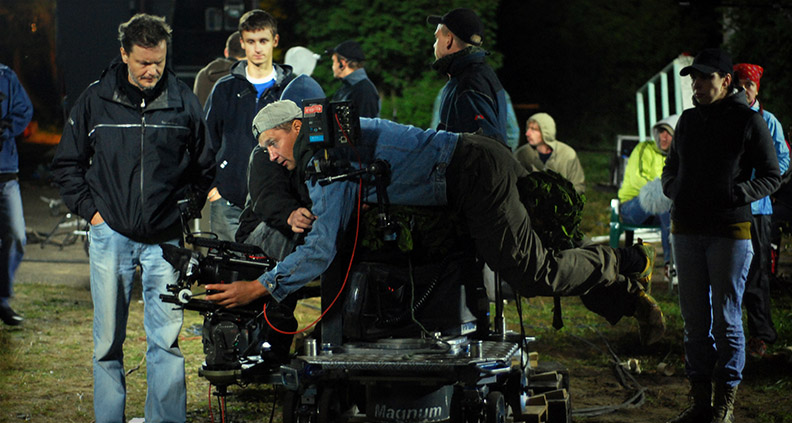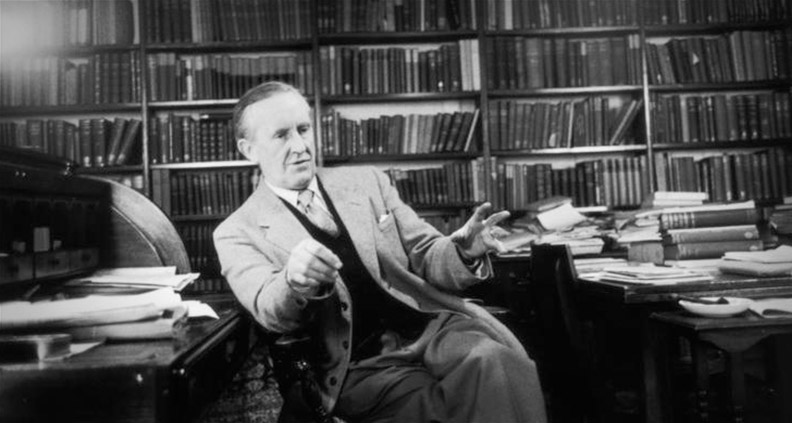The challenge with beginning any new creative work is that, at first, the project is only one person’s vision. True especially for writers, but applicable to anyone with a bee in their bonnet to get something done before the rest of the world catches on that it’s worth doing. But Filmmaking is usually considered a collaborative endeavor—and as a writer and producer, I’ve definitely found this to be true… eventually. Those first few steps of concept development, however, can be grueling. So how can we frontrunners build a strong support system around ourselves? How do we invite others into the process to help turn our cool idea into a living, breathing film? A strong creative partnership is something I’ve long desired, and have found elusive. Much of my motivation in moving to LA was to increase my chances of connecting with other creatives for mutual encouragement and accountability, a mission that never seemed to work out in my hometown. My first year in LA, I was riding the gravy train of my first successful real estate endeavor. I had over a year of living expenses in the bank and a clear schedule to create. And I was alone. At first it was great. I was making goals. I was reaching goals. I was exploring my new city and feeling like this was the first year of the rest of my life. But very gradually, my productivity wound down and I began to feel unmotivated. I was mystified–surely I had everything I needed to make a successful foray into the world of independent film. What was my problem? It wasn’t until I moved in with roommates and took up office hours at a coworking space that I noticed a significant uptick in my energy and creative output. Less free time, more distractions, and somehow I became more productive. We creatives tend to be really hard on ourselves for getting sidetracked on our projects and career trajectory, which is understandable given the achievement-oriented culture of how we do things in America. But when you consider how much work and sacrifice is involved along the way of any creative endeavor, it’s no wonder we procrastinate, get stuck or otherwise find our long-term goals derailed. So how are these energizing relationships begun, let alone sustained? Well, to continue using myself as an example, my co-working space (Epiphany Space in Hollywood) became the place where I formed numerous lasting friendships. My team of support currently consists of: a former New York chef who is married to a screenwriter and understands creativity; a passionately spiritual thespian and writer who is working on her memoir; and a story warrior working to sell her screenplays to studios. We’re all working on our own thing, but there has been something truly inspiring about sitting side-by-side with other people who understand the creative process. When we don’t feel like working or get stuck, the others are there to coach us through. At our best, my little group reminds me of “the Inklings,” which fans of author C.S. Lewis may recall. The reading group formed once upon a time among Oxford scholars to eat lunch, share new pages and critique each other’s work is famous for the writing that came out of it, if not the general approval of the writings themselves (such as Hugo Dyson’s famous objection to J.R.R. Tolkien: “Oh God, no more elves!”). Members rotated in and out over the years, but the core group was Tolkien, Lewis, and Charles Williams. Meeting weekly at The Eagle and Child pub, Lewis encouraged Tolkien to keep on writing about those elves and all their elvish doings. “The unpayable debt that I owe to [Lewis] was not ‘influence’ as it is ordinarily understood, but sheer encouragement. He was for long my only audience. Only from him did I ever get the idea that my ‘stuff’ could be more than a private hobby.” -J.R.R. Tolkien New working theory: carve out regular, focused time on my own to work on projects. Balance that with regular, collaborative, group time with people whose work I admire and whose opinions I trust. On establishing and cultivating these kinds of relationships, I submit the following:
Go to events. True, most of the people you will meet while networking will probably become Twitter followers and nothing more. But! I met one of my favorite writer friends during a Final Draft screening at the Cat and Fiddle pub.
Try a co-working space that’s friendly to your field. Epiphany Space is designed specifically to bring creators together and equip them to make stuff. It’s pretty awesome, and that’s why I work here.
Group therapy. Stay tuned for the upcoming column entitled, Writers’ Groups: A Blessing or Curse? But seriously, if you belong to a writers’ group you’ve actually enjoyed please let us know (I’ve had mixed experiences).
Get out of each other’s way. And, in the case of collaborative works, give each other the space to do your own thing your way.
At all times when cultivating creative partnerships, be patient and give it an honest try. Lewis and Tolkien didn’t immediately get along, but eventually bonded over a mutual love of Norse mythology (go figure). “Friendship arises out of mere Companionship when two or more of the companions discover that they have in common some insight or interest or even taste which the others do not share and which, till that moment, each believed to be his own unique treasure (or burden). The typical expression of opening Friendship would be something like, ‘What? You too? I thought I was the only one’.” –C.S. Lewis, The Four Loves I think the key word there is “discover”—discovery implies a degree of hiddenness. And just like any treasure, a true friendship is worth the search. To learn more about Film Independent, subscribe to our YouTube channel or follow us on Twitter and Facebook. To learn how to become a Member of Film Independent, just click here.


